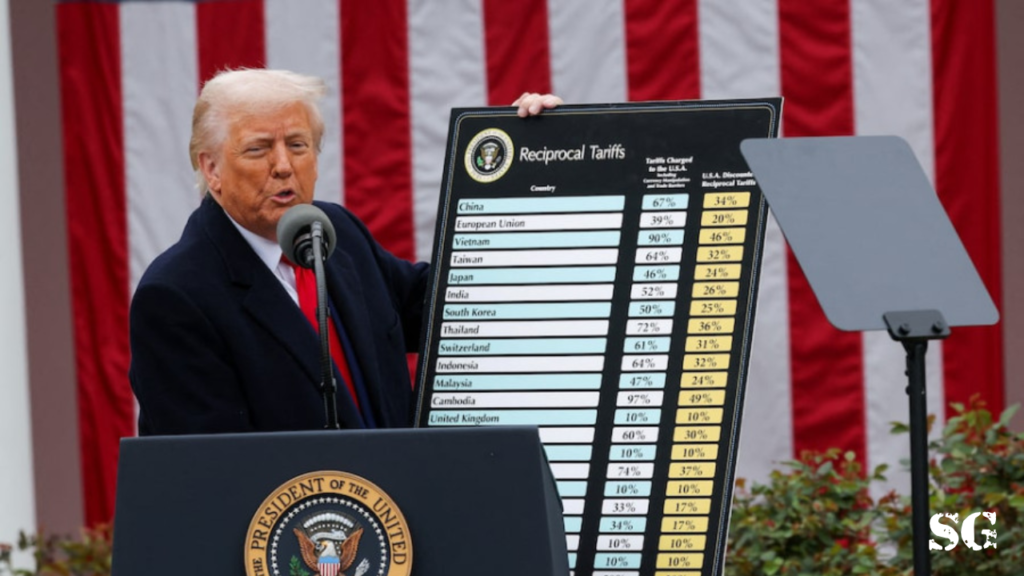Table of Contents

Trump Imposes Sweeping Tariffs, Escalating Global Trade War
New Tariffs Announced
President Donald Trump has announced a 10% tariff on most goods imported to the United States, alongside higher duties on multiple countries, intensifying a global trade war. These new tariffs threaten to increase inflation and slow economic growth.
Market Reactions and Global Condemnation
The announcement, made in the White House Rose Garden, immediately affected global financial markets. Japan’s Nikkei hit an eight-month low, while U.S. and European stock futures dropped sharply. Since mid-February, U.S. stocks have lost nearly $5 trillion in value.
Leaders worldwide condemned the tariffs, marking a shift from decades of trade liberalization. China, facing a new 34% tariff on top of the previous 20%, urged the U.S. to withdraw the levies and vowed countermeasures.
Warnings from Economists and Officials
U.S. Treasury Secretary Scott Bessent warned other nations against retaliatory measures, arguing that escalation would harm consumers and global trade.
Close U.S. allies were also targeted: the European Union faces a 20% tariff, while Japan is subject to a 24% rate. Tokyo expressed regret and stated that all response options remain on the table.
The base 10% tariffs take effect on April 5, with higher reciprocal rates beginning April 9.
Impact on the U.S. Economy
Under Trump, the effective U.S. import tax rate has risen to 22% from 2.5% in 2024. Analysts warn that this level, last seen in 1910, could trigger a global recession.
Trump justified the tariffs as a necessary response to foreign trade barriers, claiming they will boost domestic manufacturing jobs.
Political Reactions and Legislative Efforts
The Senate passed a bill (51-48) to terminate Trump’s Canadian tariffs, with some Republicans opposing the policy. However, the bill is unlikely to pass in the Republican-controlled House.
Trump’s top economic advisor, Stephen Miran, acknowledged short-term disruptions but insisted the tariffs would benefit the U.S. in the long run.
Closing the ‘De Minimis’ Loophole
Trump signed an order closing a trade loophole that allowed duty-free imports of goods valued at $800 or less from China and Hong Kong. Effective May 2, this move aims to curb fentanyl trafficking, though China denies responsibility for the issue.
Additional Tariffs and Future Trade Policy
The administration is considering tariffs on semiconductors, pharmaceuticals, and critical minerals. Auto imports will also face a new set of tariffs starting Thursday.
Global Repercussions and Business Concerns
European leaders warned that a trade war would weaken Western economies. Italy’s Prime Minister Giorgia Meloni emphasized the need for negotiations to prevent economic decline.
Meanwhile, U.S. Representative Gregory Meeks announced plans to introduce legislation to end the tariffs, though passage remains unlikely in the Republican-controlled Congress.
Conclusion
Trump’s aggressive tariff policies have rattled markets and global economies. As businesses and consumers brace for higher costs, political and economic leaders continue to debate the long-term impact of these measures.
“Trump Imposes Sweeping Tariffs, Escalating Global Trade War” “Trump Imposes Sweeping Tariffs, Escalating Global Trade War” “Trump Imposes Sweeping Tariffs, Escalating Global Trade War” “Trump Imposes Sweeping Tariffs, Escalating Global Trade War”